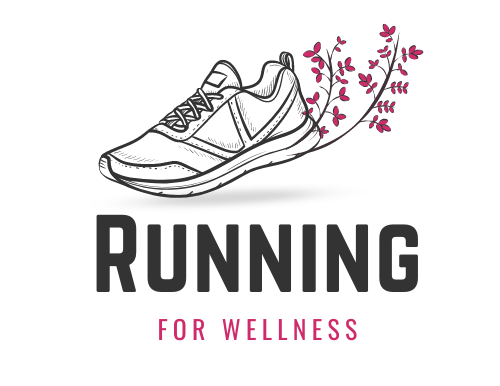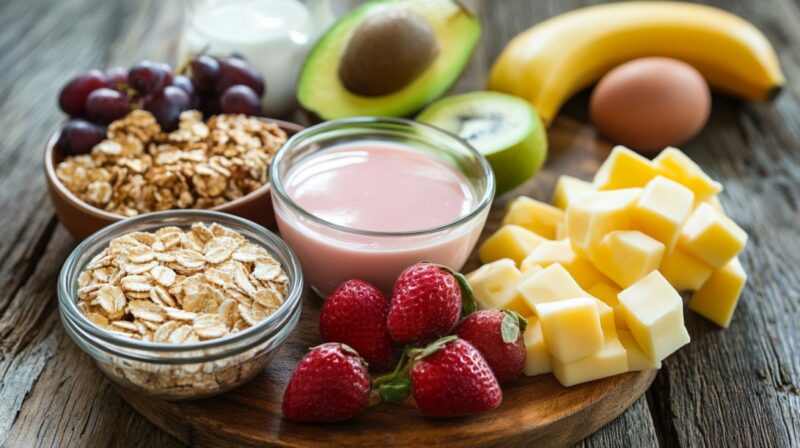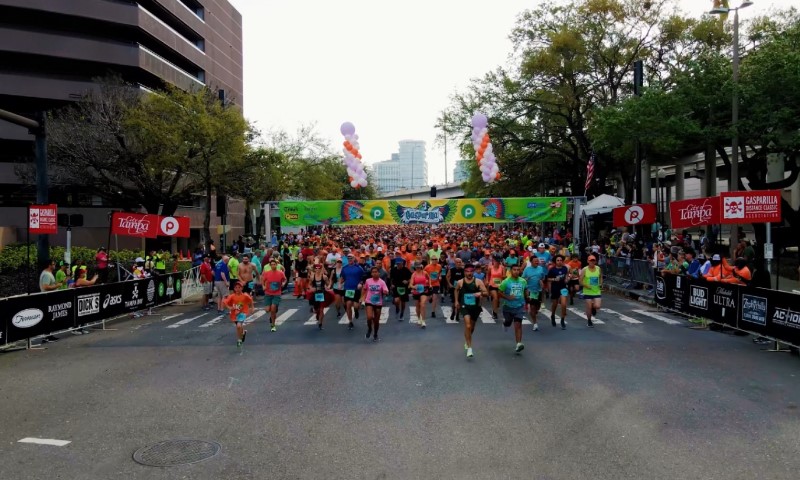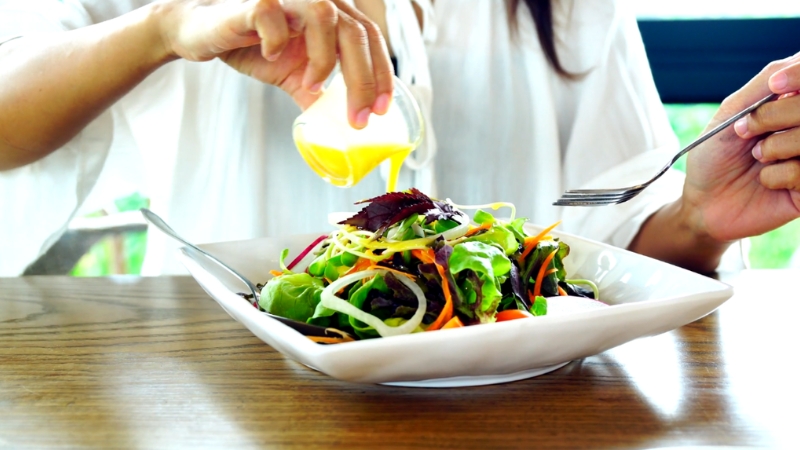Nutrition plays a powerful role in how a runner performs, recovers, and improves. Strategic eating habits before and after runs can be the difference between a strong finish and a sluggish effort.
Timing, choice of macronutrients, and personal digestive tolerance all shape the outcome.
Pre-run meals fuel energy levels, while post-run meals help repair and recharge muscles. Getting both right lays a solid foundation for consistent performance. It is just one of many self-care options for runners.
Table of Contents
TogglePre-Run Nutrition
Fueling properly before a run can significantly impact energy, endurance, and overall performance.
Pre-run nutrition helps the body perform better, reduces the risk of fatigue, and can even prevent common digestive issues that disrupt training.
Why Pre-Run Nutrition Matters
Running on empty is a fast track to poor performance. Muscles rely on readily available fuel to power each stride, and without it, energy dips sharply, often resulting in that dreaded mid-run burnout.
Pre-run meals and snacks stabilize blood sugar levels, provide glycogen for muscular endurance, and help maintain mental focus.
When consumed at the right time, pre-run food choices can reduce gastrointestinal distress, keeping runners light on their feet and mentally in the game. Fatigue, cramps, and sluggishness often trace back to poor planning in this area.
When to Eat

Timing meals before a run plays a major role in how food is digested and how energy is delivered during the workout.
The goal is to allow enough time for digestion while still ensuring glycogen stores are topped off.
- Large meals should be consumed 2 to 4 hours before running. These meals can include a mix of protein, carbohydrates, and fats.
- Smaller snacks, especially those low in fat and fiber, are best eaten 30 to 60 minutes before the run.
- Morning runners often need to opt for quick-digesting, light options, especially if running within an hour of waking up.
Choosing the right timing helps avoid discomfort and keeps energy levels steady during physical activity.
What to Eat
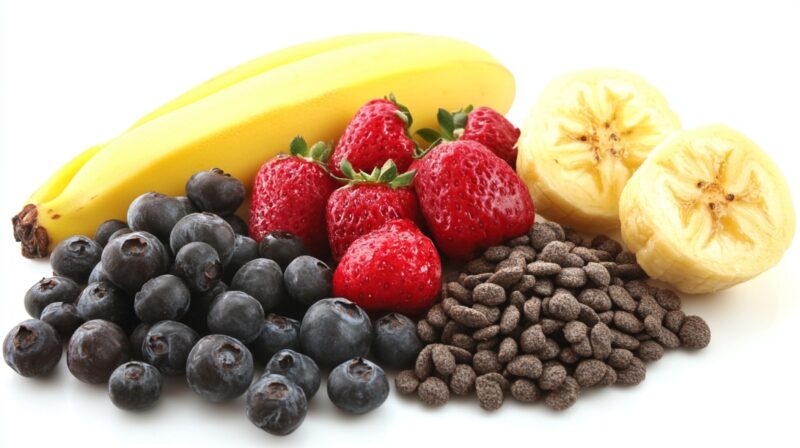
Food choices matter just as much as timing. Runners need fuel that is easy to digest but still provides energy for the duration of the run.
- Complex carbohydrates such as oats, sweet potatoes, and whole grains offer sustained energy and are ideal when consumed a few hours ahead.
- Simple carbohydrates like bananas, white bread, or applesauce deliver quicker energy and work well closer to run time.
- Low-fat and low-fiber foods help avoid bloating and cramps by reducing the digestive workload.
- Avoid greasy or spicy foods before a run, they tend to sit heavy in the stomach and often lead to discomfort.
Matching food type with timing helps ensure energy is available without slowing digestion or causing gastrointestinal distress.
Sample Pre-Run Meal Ideas
Here are a few pre-run meals and snacks that check the boxes for digestion and energy release.
- Toast with peanut butter and banana – A combination of simple and complex carbs with a bit of protein and fat.
- Oatmeal with jam or cinnamon – Steady-burning carbs and natural sugars for morning runs or midday sessions.
- Banana with yogurt or nut butter – Quick and easy, great for those who need to eat shortly before running.
- Smoothie with oats, banana, nut butter, and milk – Easily digestible and packed with energy; it is perfect for an hour out.
Experimenting with different combinations during training helps find what works best. Once the right balance is found, energy improves, recovery becomes easier, and running feels more efficient.
During the Run (for runs > 60–90 minutes)

Fueling during a long-distance run can make or break the performance. Once the body burns through its initial glycogen reserves, energy levels begin to drop, muscles fatigue, and focus becomes harder to maintain.
That’s why runners covering distances longer than 60 to 90 minutes benefit from steady carbohydrate intake during the effort. Proper mid-run fueling can keep pace strong, reduce the risk of “bonking,” and make the experience far more manageable.
Several fueling strategies and product options exist to help maintain energy output, and they are outlined in the bullet points below.
Carbohydrate Intake
Sustaining energy during a prolonged effort means delivering a steady stream of fuel to working muscles.
Once glycogen stores begin to empty, carbohydrates ingested during the run become essential.
- Aim for 30 to 60 grams of carbohydrates per hour during runs longer than 60–90 minutes.
- A mix of approximately 80% glucose and 20% fructose improves absorption and provides faster energy release.
- Refueling helps delay fatigue and maintains mental clarity.
- Consistent intake can prevent energy crashes late into the run.
Runners should experiment during training to find the right quantity and combination that suits their digestion.
Fuel Options

Multiple sources of mid-run fuel exist, each with different textures, flavors, and carbohydrate concentrations.
Personal preference plays a big role here, but easy-to-digest options are generally more effective during motion.
- Sports drinks: Offer quick energy and hydration in one, ideal for warmer conditions.
- Energy gels: Concentrated carbohydrate doses in portable packs, convenient for racing.
- Chews or blocks: Provide a gummy texture, often easier to consume gradually.
- Fruit pouches: Natural options like applesauce deliver quick sugar and feel gentler on the stomach.
- Coconut water: Naturally high in potassium; can be combined with a pinch of salt for better sodium balance.
- Diluted fruit juice with electrolytes: A homemade alternative offering hydration and carbs in one go.
Spacing carbohydrate intake throughout the run, such as every 20 minutes, can make consumption easier and more consistent.
Fluids taken with carbs also support digestion and help reduce the risk of stomach cramping.
Post-Run Nutrition
Recovering properly after a run makes a noticeable difference in how the body responds to training.
Muscles are worn down, glycogen reserves are depleted, and hydration levels have dropped.
To bounce back stronger and prepare for the next session, what happens after the final mile matters just as much as the effort during it.
Proper post-run nutrition supports energy replenishment, muscle repair, and overall recovery.
Why Post-Run Nutrition Is Crucial
Refueling right after a run replenishes glycogen stores, which are the body’s primary energy source during endurance activities. Muscles experience microtears while running, and proper nutrition provides the building blocks needed for repair.
Skipping recovery meals delays healing, leads to prolonged soreness, and makes consistent training harder.
Getting it right enhances strength, endurance, and overall performance with time.
Timing
Nutrition timing matters after a workout. Muscles are especially receptive to nutrients in the first 30 to 60 minutes post-run. This window offers the best opportunity to refill energy stores and start the recovery process.
Delaying food intake limits the benefits and can make the next training session feel harder.
A well-rounded meal 1–2 hours after that initial snack supports full recovery and leaves the body ready for future effort.
- Eat a recovery snack within 30–60 minutes post-run.
- Follow up with a complete meal within two hours.
- Include water and electrolytes to rehydrate and replace minerals lost through sweat.
Macronutrient Goals
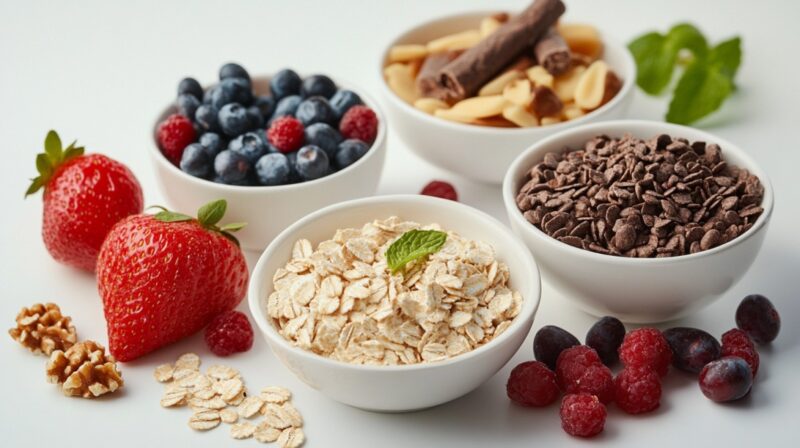
Each macronutrient plays a role in how the body recovers. Carbohydrates are essential for replenishing glycogen stores, while protein helps repair damaged muscle fibers.
Fats are not a priority immediately after a run but can be included in the follow-up meal for overall balance.
- Carbohydrates: 1–1.2g per kilogram of body weight.
- Protein: 0.4g per kilogram of body weight.
- Focus on complex carbs like whole grains and fruits.
- Choose high-quality protein such as Greek yogurt, eggs, tofu, or lean meat.
- Drink fluids that contain electrolytes, especially after a sweaty session.
Sample Post-Run Meal Ideas
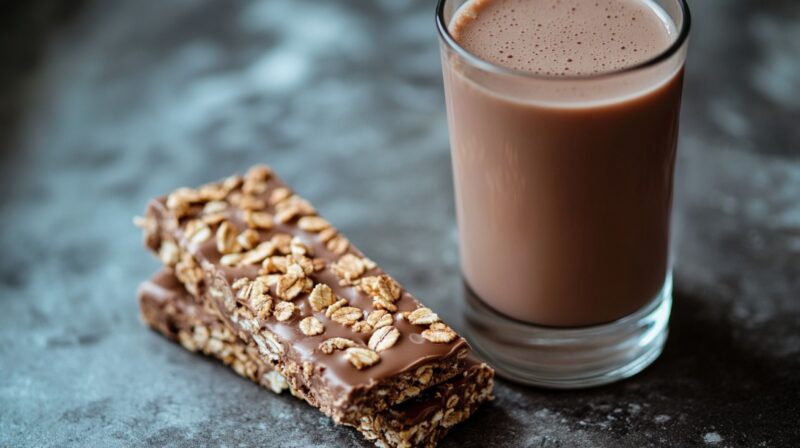
- Chocolate milk and a cereal bar – quick, portable, and carb-protein balanced.
- Smoothie with fruit and protein powder – easy to digest and hydrating.
- Whole grain wrap with grilled veggies and chicken or tofu – provides both carbs and protein in a savory option.
- Greek yogurt and granola – protein-rich with complex carbs and a hint of crunch.
- Quinoa bowl with black beans, roasted vegetables, and avocado – ideal for post-run dinner recovery.
Sticking to a solid post-run nutrition routine builds a stronger foundation for endurance, strength, and progress toward any training goal.
Let food work as part of the training plan, not just something that happens after.
Final Thoughts
Practice nutrition habits during training instead of experimenting on race day.
Each runner has different needs, so it helps to pay attention to how different foods affect performance and digestion.
Hydration should never be overlooked—pair every meal or snack with fluids, especially after a tough run.
Tuning in to the body’s signals and adjusting accordingly keeps performance and recovery on track.
Related Posts:
- How Can You Start a Career as a Running Coach?
- Lower Back Pain While Running? Here's What You Need to Know
- Should You Run on an Empty Stomach? Pros and Cons Explained
- How Far Is a Half Marathon? Everything You Need to Know
- How To Recover From Muscle Inflammation Without Medication
- 25 Simple Running Motivation Tips To Get You Moving
